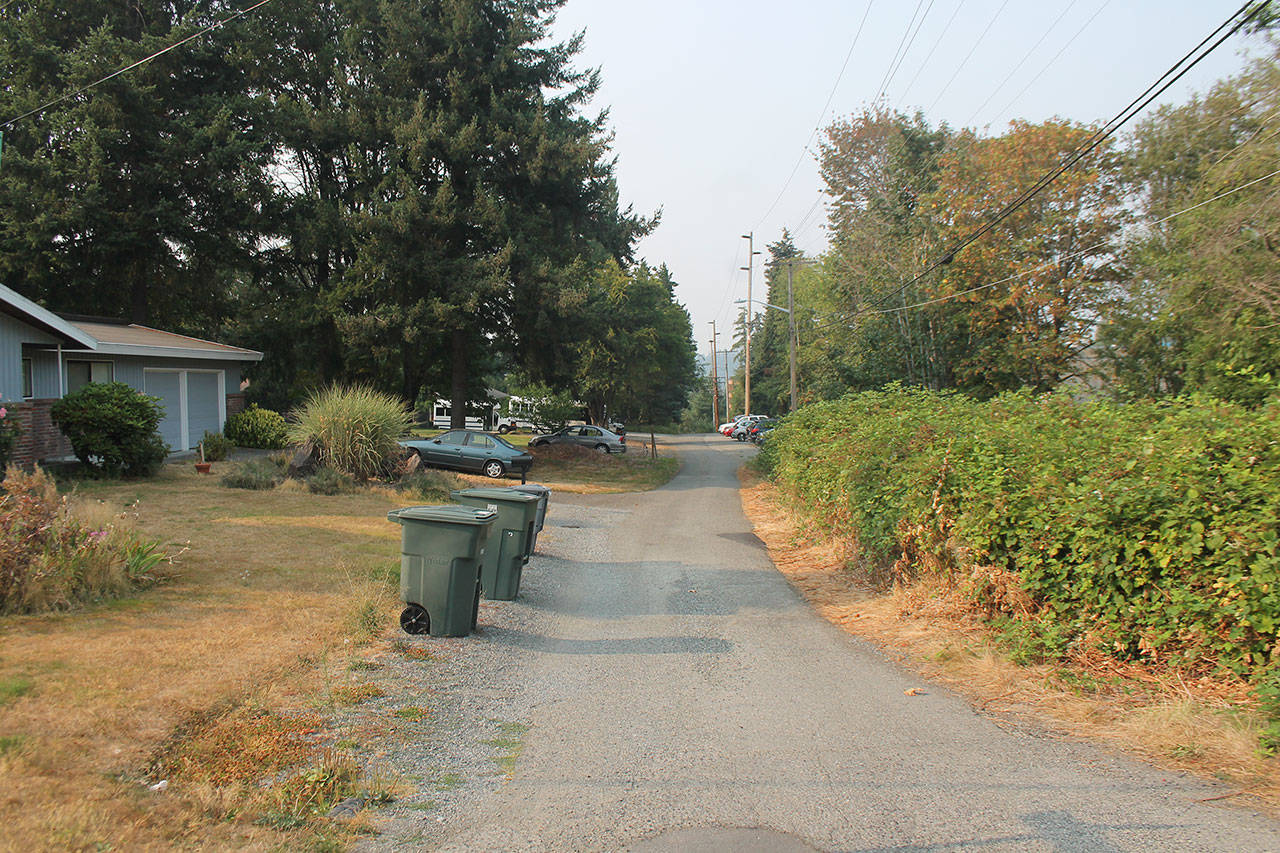Neighbors who have lived next to the Stroum Jewish Community Center (SJCC), French American School of Puget Sound and Herzl-Ner Tamid Conservative Congregation for seven, 10, 22 years and more said they recently learned about a proposal to change the zoning on those properties, followed by a plan to remodel and expand.
The three nonprofit organizations are requesting an amendment to the city of Mercer Island’s Comprehensive Plan to create a new “private community facilities” designation. Their properties, comprising 18 acres, are on East Mercer Way, adjacent to Interstate 90 to the north and residential-zoned properties to the south, east and west.
Residents in the Mercerwood neighborhood — who face a greenbelt that separates their street from the SJCC on Southeast 40th Street — fear they will be looking at tall fencing, bright lights and other infrastructure they say doesn’t belong in a single-family neighborhood if a proposed master plan moves forward. They are also concerned about the traffic, noise, parking and safety impacts of the expansion.
But Planning Commission chair Daniel Hubbell said that the new zone is meant to increase protections for neighborhoods home to private community facilities like the SJCC, country clubs, churches and more, by making regulations clearer and more consistent. Though the zone would initially apply just to the SJCC/French American School/Herzl properties, it could be extended to other parts of the Island that face similar challenges.
“The issue goes back five or six years,” Hubbell said. “There are a number of uses on the Island that are located in zones not directly correlated to their use.”
Hubbell was on the city’s Design Commission when Mercer Island went through a process to define “public institutions” or “public facilities.” The new zone was meant to help regulate the Island’s schools, which are also located in residential zones.
The East Mercer Way properties have a “hodgepodge” of zoning, Hubbell said; R-8.4, R-9.6, B, and C-O (single-family residential, business and commercial-office), according to the city. This mix of zoning designations “each come with their own set of regulations,” said interim director of development services Evan Maxim.
When the properties came to the city with a plan to redevelop, a new zone was suggested as a way to benefit both the applicants and the neighbors, Hubbell said. He said that some of the neighbors’ concerns are “unaddressable under the current code.”
“No consistent regulations would have governed the concerns we’re hearing from the neighborhood, like traffic, noise, parking, safety,” Hubbell said.
Some neighbors said they’re not opposed to a remodel that fits in the current footprint of the facilities, but they are concerned about the expansion into the greenbelt, along with the city’s process, timing and communication on the issue.
“They’re starting with this Comp Plan amendment in the middle of the summer. It’s just not on peoples’ radars right now,” said Casey O’Rourke.
The Planning Commission will host a public hearing on Aug. 29 and Sept. 5 at City Hall on all 15 of the proposed 2018 Comprehensive Plan amendments, which also include adopting an arts and culture plan and rezoning a parcel in Town Center for commuter parking.
The amendment is the first part of a three-step process when it comes to the SJCC proposal, Maxim said. After the city has defined what a “private community facilities” zone is and what it means, the properties can present a master plan that citizens can comment on. Then, they’ll have to apply for building permits and schedule review sessions with the Design Commission. Hubbell estimated that construction is years away.
Hubbell said it was “unfortunate” that the properties already submitted an initial “concept design for potential Jewish community campus” to the city. The master plan involves a land swap among the three properties.
“That gave the impression that all of a sudden there’s this master plan that’s been signed off on,” he said. “It made people feel like that’s what we’re voting on, and it’s not. All we’re talking about now is the framework that will allow us to dig into the details later.”
The question is: should these sorts of uses be allowed on the Island, and if so, where should they be located and should they be regulated differently than they currently are in residential areas, Hubbell said.
Islanders said it’s clear that the properties plan to expand into neighborhoods. The French American School bought three houses on Southeast 40th Street, according to King County Assessor records and two on 97th Avenue Southeast.
Some residents want the city to draft development regulations concurrently with the Comprehensive Plan amendment, but Hubbell said the Planning Commission wanted to be “perfectly crisp” about the goals of the new zone before delving into the specifics.
Overall, Hubbell said the interests of the residents and the commission are “aligned,” and that the city is seeking input. Neighbors want to make sure their concerns are heard.
“Stop rushing to answer the request from these organizations to change their zoning and creating confusion for everyone,” 26-year Island resident Cheryl D’Ambrosio wrote in an email to the Reporter. “Instead, take the necessary time to review the current state of affairs of these sites and seek to find out how neighboring residents are currently impacted, and who on Mercer Island is served.”
Email or written public comment may be submitted at any time during the Planning Commission’s review, until the public hearing is closed on Sept. 5. For questions, or to submit comments, email Maxim at evan.maxim@mercergov.org. Community input is also welcomed at future@sjcc.org.
Residents can also learn more and give feedback through the city’s new online community engagement platform, Let’s Talk Mercer Island, which can be found at www.mercergov.org.


